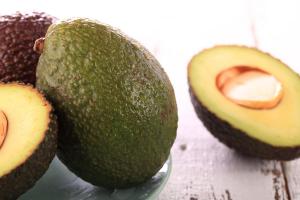Are All Walnut Trees Poisonous to Plants?
Walnut trees are a common sight in North America and Europe. They are known for their delicious and nutritious nuts, which are used in a variety of dishes. But did you know that some species of walnut trees can be poisonous to plants? In this article, we will explore the relationship between walnut trees and other plants, and whether or not they are all poisonous.
What is Juglone?
Juglone is a chemical compound found in various parts of the walnut tree, including leaves, fruits, and roots. It is a natural herbicide that protects the tree from competing plants. It inhibits the growth of nearby plants by hindering the plant’s ability to perform photosynthesis, a critical process for plant growth.
Which Walnut Trees Produce Juglone?
Not all walnut trees produce juglone, but those that do include the black walnut, the butternut, and the English walnut. These trees are native to North America and are commonly grown for ornamental or timber purposes.
What Plants are Affected by Juglone?
Juglone is harmful to many plants, including tomatoes, peppers, potatoes, blueberries, azaleas, and rhododendrons, to name a few. These plants will exhibit stunted growth, yellow leaves, and, eventually, death when exposed to juglone.
How Far Does Juglone Spread?
Juglone can have an impact on plants up to 50 feet away from the tree, although the strength of the toxin decreases with distance. The level of toxicity can also vary depending on the plant species and the density of the tree planting.
Are All Parts of the Walnut Tree Poisonous?
All parts of the black walnut tree, including the leaves, fruits, and bark, contain juglone. The husks of the fruit also contain tannins, which can cause skin irritation if handled directly. Other parts of the tree, such as the heartwood, contain other natural toxins that repel insects and fungi.
Are All Walnut Trees Dangerous for Plants?
While many walnut trees produce juglone, not all species are equally toxic. Some trees produce less juglone, making them less dangerous for neighboring plants. Additionally, certain plants can tolerate juglone better than others, and their roots can be planted near walnut trees without issue. For example, ferns, sedges, and grasses are typically able to grow near black walnut trees without issue.
Conclusion
Walnut trees are an important part of the ecosystem and can provide a variety of benefits. However, some species produce juglone, which can be harmful to other plants. It’s essential to understand which species produce juglone and which plants can tolerate the presence of the toxin. By doing so, we can ensure the health of our gardens and surrounding ecosystem.

 how many times do yo...
how many times do yo... how many planted tre...
how many planted tre... how many pine trees ...
how many pine trees ... how many pecan trees...
how many pecan trees... how many plants comp...
how many plants comp... how many plants can ...
how many plants can ... how many plants and ...
how many plants and ... how many pepper plan...
how many pepper plan...
































